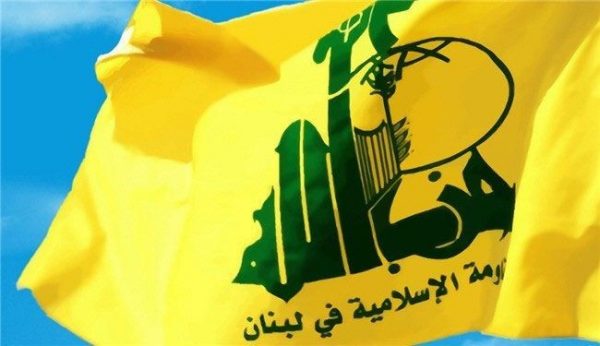WASHINGTON—The Trump administration levied sanctions against tErwo Lebanese men officials said are prime donors to the militant Hezbollah movement, which the U.S. has designated as a terrorist organization.

The Treasury Department said the two men have channeled millions of dollars directly to the group, including by using the African diamond trade and high-value works of art to allegedly launder money used to fund terrorism-related activity.
Neither of the two businessmen sanctioned on Friday, Nazem Said Ahmad and Saleh Assi, could be reached for comment.
The new U.S. designations come as Western officials grow increasingly concerned that Hezbollah will be used by Iran to lash out against the U.S. and its allies for Washington’s economy-wrecking pressure campaign.
Those concerns have prompted a ramp-up of efforts by the Trump administration to pressure the group’s financiers through indictments and sanctions, U.S. security officials said.
Secretary of State Mike Pompeo said that the two sanctioned men, by allegedly funneling illicit proceeds to Hezbollah and concealing revenues from Lebanon’s tax authorities, “demonstrate yet again that Hezbollah is concerned first and foremost with funding itself and disregards the interests of Lebanon and the Lebanese people.”
“Over the coming months, we plan to accelerate our work to counter corruption and end terrorist financing,” he said.
Hezbollah didn’t respond to requests for comment. The group’s leader, Hassan Nasrallah, made a televised statement on Friday believed by some analysts to be a veiled reference to the sanctions.
“Some imagine that if Iran is assaulted, then Iran will depend on its allies to retaliate,” Mr. Nasrallah said. “I want to provide an accurate piece of information: Whoever assaults Iran, then Iran itself will respond to them. And it does not accept being silent and depending on its allies.”
“Imposition of new sanctions is another futile attempt to break the bonds of friendship between Lebanon and Iran, which will never succeed,” said Alireza Miryousefi, Iran’s spokesman at its mission to the United Nations.
The U.S. said Mr. Assi, who is based in Congo, is alleged to have laundered money through Mr. Ahmad’s diamond, gems and other businesses. Mr. Assi then provided financing to Hezbollah’s operational arm, Islamic Jihad, through another wealthy Lebanese businessman previously blacklisted by the U.S., Adham Tabaja.
Several companies controlled by the men also were sanctioned, including Mr. Assi’s Inter Aliment SAL Offshore and Mr. Ahmad’s Blue Star Diamond SAL Offshore. No one answered the phones at numbers associated with the companies.
The sanctions block any assets the men and companies have within U.S. jurisdictions, prohibit U.S.-based companies and individuals from transacting with them, and expose anyone conducting business with them to potential penalties.
Mr. Ahmad, according to interviews he has given to Architectural Digest and online art magazines, has an extensive collection of high-value art that includes works by Pablo Picasso, Andy Warhol and Jean-Michel Basquiat.
The art collection and real estate deals, Treasury said, are believed to have been used by Mr. Ahmad to launder money that is transferred to Hezbollah.
“He uses the blood-diamond trade to generate money and he gives that money directly to Hassan Nasrallah,” a senior administration official said. “He’s one of his top donors, but he also keeps financial ties across the terror group,” including its top representative to Iran, the U.S. officials said.
“We expect Lebanese authorities to move swiftly, to block all assets associated with these terrorist financiers,” the official said.
Treasury said its actions Friday were coordinated with other investigations conducted over the years by Homeland Security and the Drug Enforcement Administration.
One case, called Project Cassandra by the DEA, involved a multibillion-dollar money-laundering operation that used drugs, cars and other goods traded between the U.S., West Africa, Lebanon and elsewhere to funnel money to Hezbollah.
That case resulted in sanctions and an indictment against the Lebanese Canadian Bank in 2011 for handling such transactions, and the bank eventually closed. The bank that took over its assets agreed to a $102 million settlement with U.S. federal prosecutors in 2013 to resolve a money-laundering indictment.
Mr. Ahmad and several of his diamond businesses were named in the Justice Department’s indictment of the bank in a 2002 United Nations report recommending sanctions against him and his firms for allegedly being involved in what the U.N. called “plundering” of resources in Congo, contributing to human-rights violations.
Former U.S. law-enforcement officials knowledgeable about the case, citing copies of official Lebanese bank records reviewed by The Wall Street Journal, said they believe the men collectively moved more than $500 million through their individual and corporate accounts in 2006-2007 alone. It isn’t clear how much of those specific funds were allegedly directed to Hezbollah.
The ability of Messrs. Ahmad and Assi and other alleged top Hezbollah financiers to continue running their global operations despite exposure has long been a concern of counterterrorism officials.
U.S. officials point to indictments in recent years of two men accused of planning attacks on federal buildings in the U.S. and the Panama Canal, one of the most important transport channels to global trade.
In August, a Lebanese businessman U.S. officials say is another major Hezbollah donor, Kassim Tajiadeen, was sentenced to five years in prison and ordered to forfeit $50 million after pleading guilty to an international money-laundering scheme that involved as much as $1 billion in transactions.
—Nazih Osseiran in Beirut contributed to this article.
Write to Ian Talley at ian.talley@wsj.com

Leave a Reply
You must be logged in to post a comment.